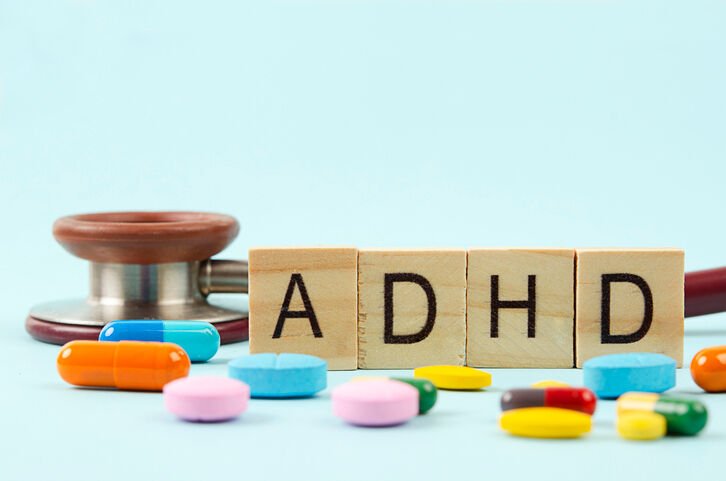
Spotlight on ADHD and autism
ADHD and autism are examples of neurodevelopmental disorders (NDD) and can involve difficulties such as concentrating or interpreting social cues. At Karolinska Institutet, research is ongoing to understand the causes and find ways to ease daily life for individuals with NDD diagnoses. On this page, we have collected popular science articles,on the subject.
In-depth reading
 Photo: Emma Hanquist
Photo: Emma HanquistA clearer picture of ADHD: focus on function
Over the past 15 years, the number of ADHD diagnoses has risen sharply in Sweden. Is this development reasonable? And what might be the cause? Whilst asking these questions, researchers would also like us to focus less on the diagnosis and more on the functional capacity of people with ADHD.
 Photo: Emma Hanquist
Photo: Emma HanquistUntreated ADHD is a costly affair
ADHD can be a lifelong condition and have a significantly negative impact on life. However, maturity plays a role in this context. Approximately half of those diagnosed as children continue to have pronounced ADHD symptoms into adulthood.
 Photo: Emma Hanquist
Photo: Emma HanquistFemale sex hormones a wild card in ADHD
Can fluctuating levels of female sex hormones worsen ADHD symptoms in women? That is what researchers at Karolinska Institutet want to investigate.
 Photo: Pixabay, CC0
Photo: Pixabay, CC0Focus on early detection of autism
Researchers are slowly getting closer to achieving an understanding of the causes of autism. However, the research focusses just as much on the question of how to diagnose and care for today's autistic children as early as possible.
 Photo: Ulf Sirborn
Photo: Ulf SirbornEight reasons why ADHD diagnoses are increasing
The rate of children diagnosed with ADHD has increased significantly in recent years. In an article in the international news service The Conversation, KI Professor Sven Bölte explains why this is the case
News in selection
 Photo: Getty Images
Photo: Getty ImagesADHD medication linked to lower risk of suicide attempts, substance abuse, and criminality
People who take medication for ADHD have a lower risk of suicide attempts, substance abuse, traffic accidents, and criminality than people with ADHD who do not take medication. This is shown in a new study by researchers from Karolinska Institutet and University of Southampton, published in the journal BMJ.
 Photo: Getty Images,Getty Images/iStockphoto
Photo: Getty Images,Getty Images/iStockphotoNew findings on long-term treatment of ADHD and link to cardiovascular disease
A large proportion of patients who start taking ADHD medication stop within the first year. However, people who use ADHD medicine for a long time and in higher-than-average doses seem to have a higher risk of some cardiovascular diseases. This is according to two new studies led by researchers from Karolinska Institutet.
 Photo: Xesai,Getty Images
Photo: Xesai,Getty ImagesNo link between paracetamol use during pregnancy and autism or ADHD in children
In the largest epidemiologic study to date of the risk of giving birth to a child with autism, ADHD or intellectual disability following acetaminophen use during pregnancy, researchers found no association. The study is published in JAMA.
 Photo: Brad Higham
Photo: Brad HighamNo association between celiac disease and autism
A registry study dismiss the long-debated association between celiac disease – also called gluten intolerance – and increased risk of autism spectrum disorders in children. The study was led from Karolinska Institutet and published in the journal JAMA Psychiatry.
Some of our researchers in this area
 Photo: Fredrik Persson
Photo: Fredrik PerssonStudying how genetic factors contribute
Kristiina Tammimies research is about understanding how genetic factors contribute to the etiology of neurodevelopmental disorders (NDDs), and how these factors translate into biological pathways affecting brain development.
 Photo: Ulf Sirborn
Photo: Ulf SirbornFocusing on autism and ADHD in children
Sven Bölte is a professor of Child and Adolescent Psychiatric Science. For over 20 years, he has been studying neuropsychiatric disabilities in children, particularly ADHD and autism spectrum disorders.
 Photo: Ulf Sirborn
Photo: Ulf SirbornResearches early development in autism and ADHD
Terje Falck-Ytter researches early development in individuals with autism spectrum disorder and ADHD. Through twin studies, he aims to understand how genetic and environmental factors contribute to individual differences in brain development and behavior.
 Photo: Maria Immala
Photo: Maria ImmalaA model to meet individual needs
Tatja Hirvikoski is a neuropsychologist and associate professor focusing on the development and dissemination of stepped care model for adults with ADHD. A core idea of the model is to combine pharmacological and non-pharmacological treatment methods to meet the needs of each individual.
